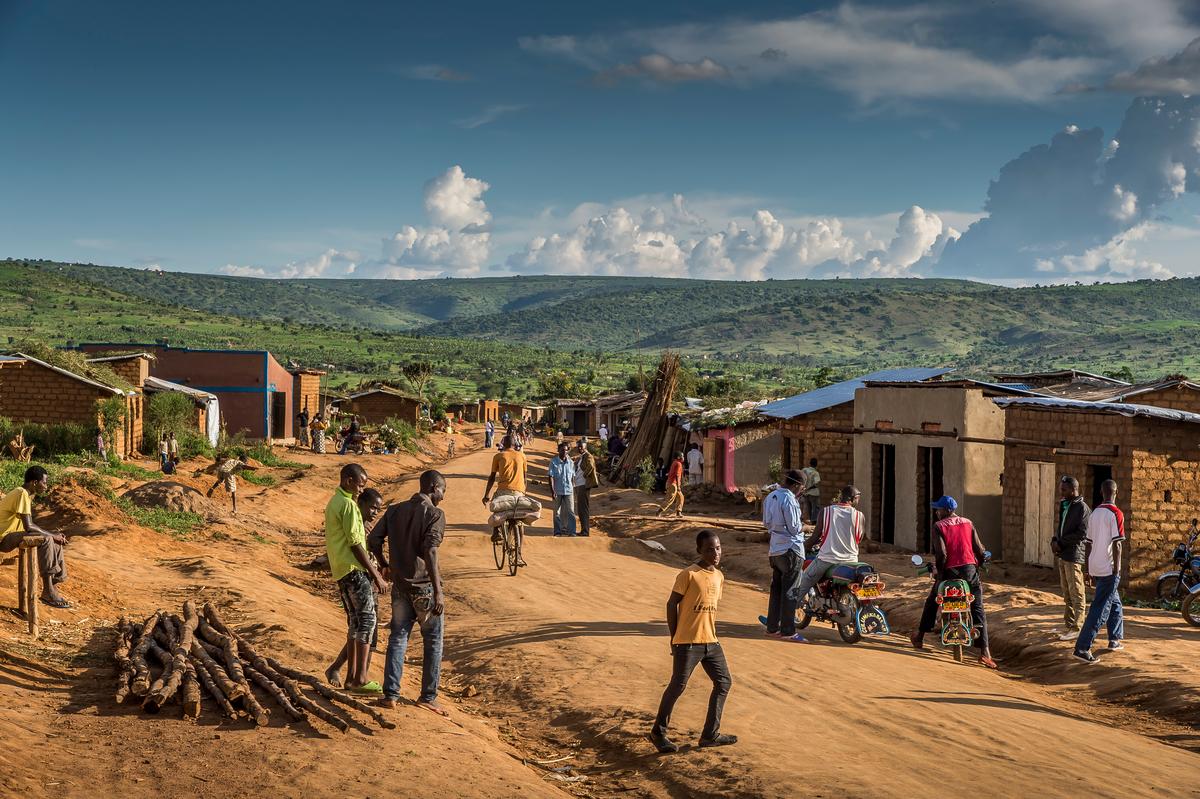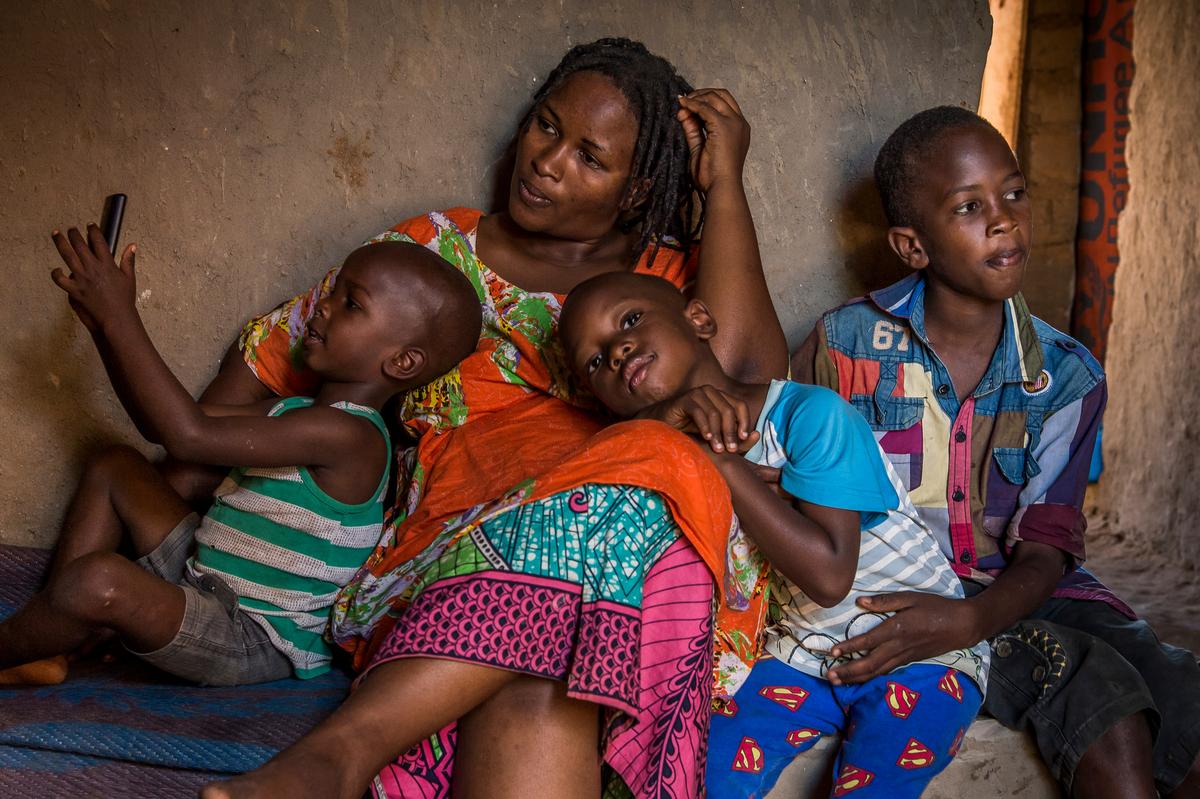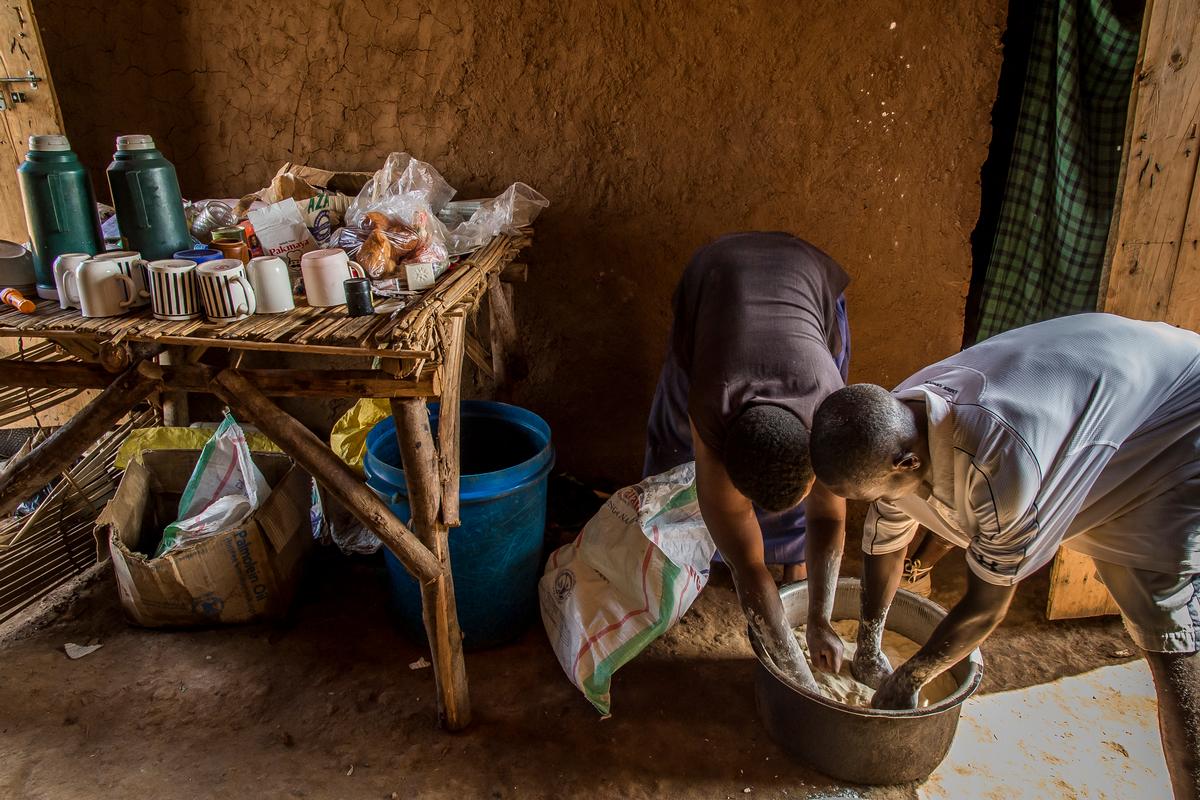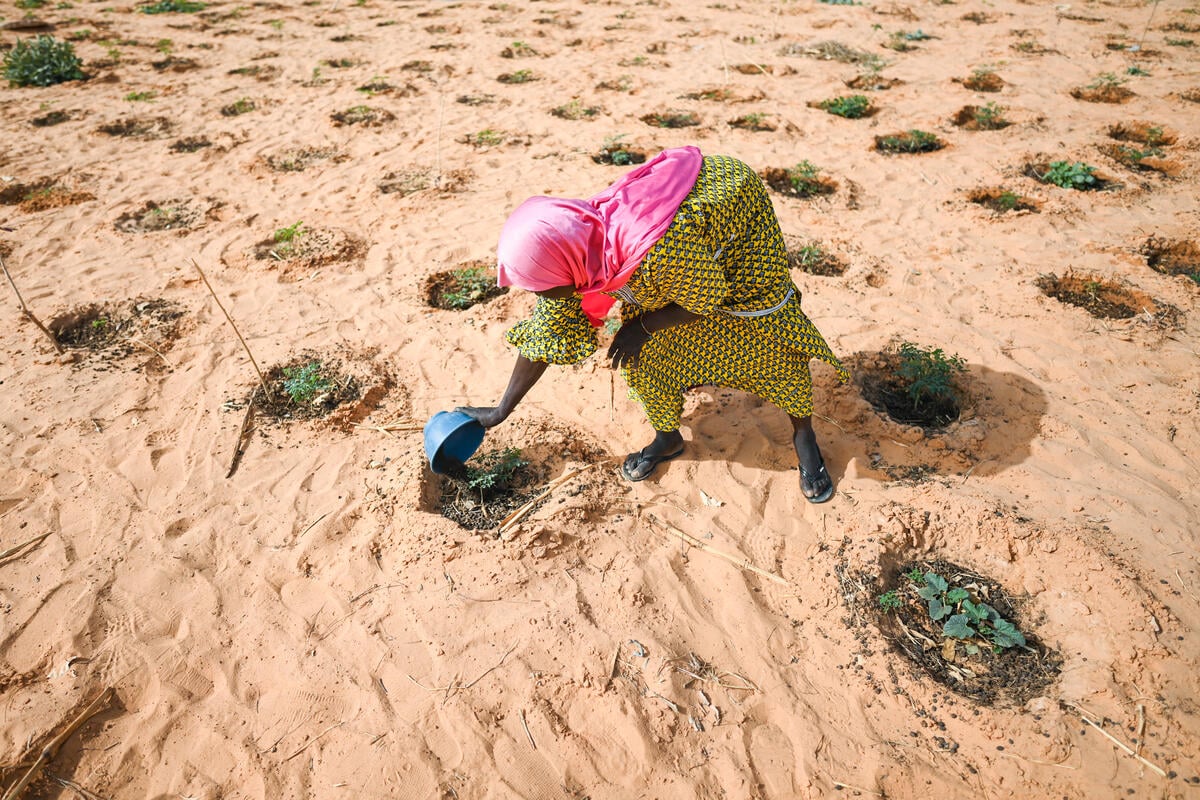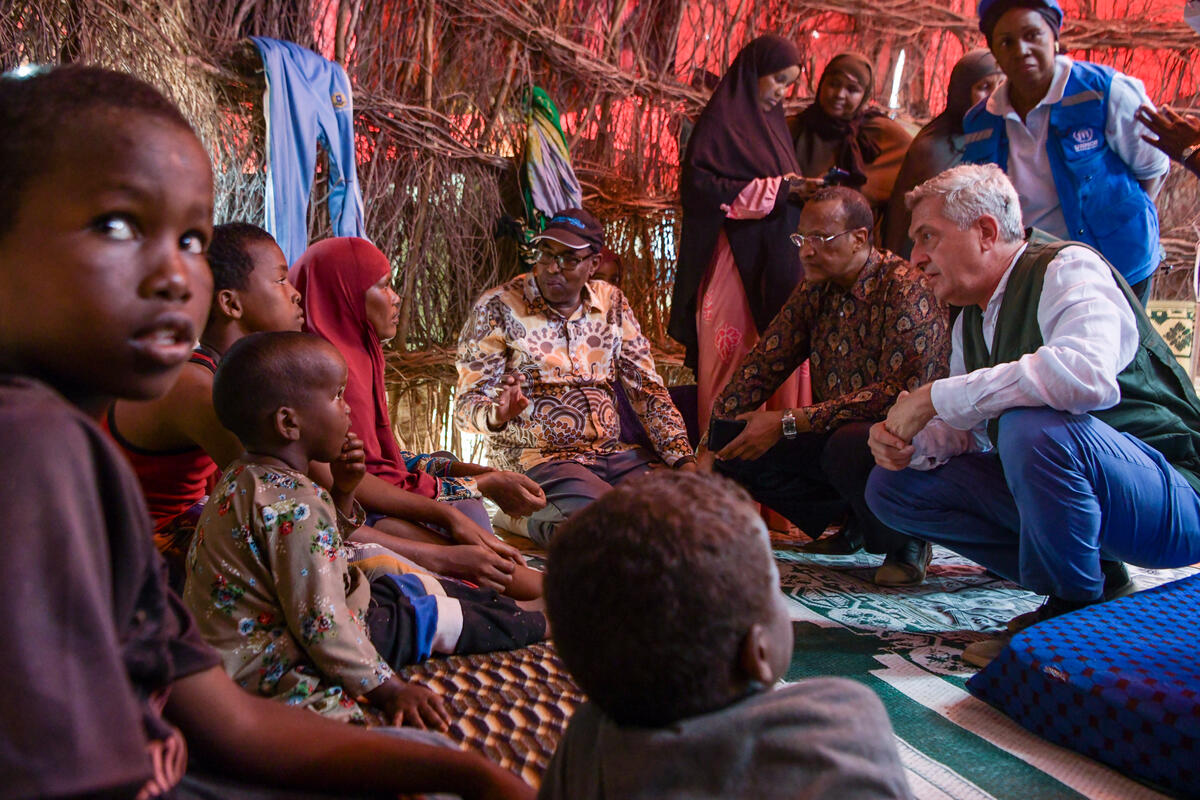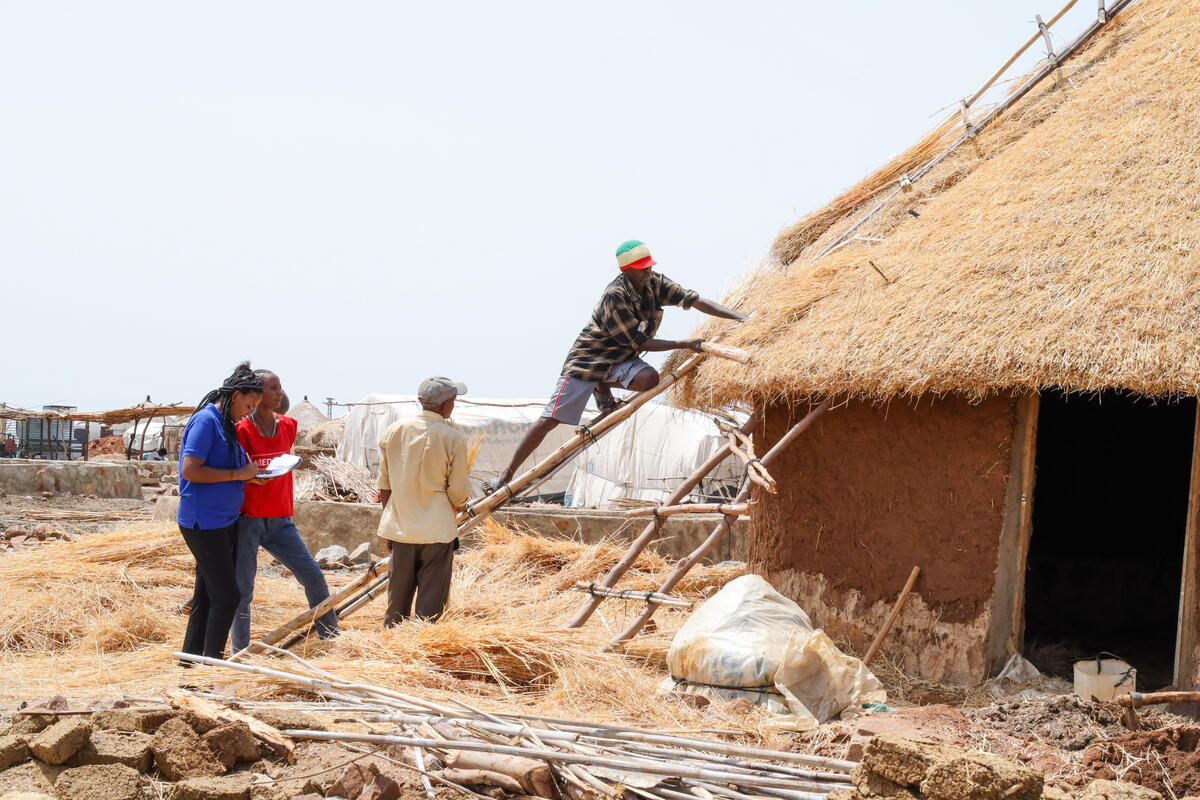A new approach to emergencies takes root in Africa

A new approach to emergencies takes root in Africa
Crouching amid a group of refugees at the Nakivale settlement in southern Uganda, Kelly T. Clements plants a mango sapling in the rich, dark earth.
A small gesture, it echoes a pioneering approach to refugee assistance that has taken root in Uganda and the Great Lakes region – and which the UN Refugee Agency's Deputy High Commissioner believes could hold vital lessons for managing the global refugee crisis.
More than half a million refugees from strife-torn countries including Burundi, Democratic Republic of the Congo and Somalia have sought safety in Uganda. Soon after arrival they are given the right to work, freedom of movement and permission to live in the community rather than in traditional refugee camps. Many who settle in rural areas receive access to plots of land.
Enshrined in law by the Government of Uganda, the pioneering approach gives refugee families a shot at becoming self-sufficient by growing their own food, accessing markets and contributing to Uganda's economy from the early stages of a life in exile that can stretch for decades.
"We were super impressed," said Clements, who was on her first field mission since taking up her appointment as UNHCR's second-highest official in July. "There was opportunity in terms of economic self-sufficiency where the government of Uganda has put refugees as part of their development plan."
Among the refugees Clements met at the Nakivale refugee settlement were some of the 15,000 men, women and children who have recently fled to Uganda to escape renewed political violence in Burundi. "I think there's a real fear. There's increased violence, and there's a perception that persecution could take root relatively quickly there," Clements said. "Because of what's happening in Burundi, we have to be prepared for far more people fleeing."
"Because of what's happening in Burundi, we have to be prepared for far more people fleeing."
Refugees arriving at Nakivale – the eighth-largest refugee settlement in the world, hosting some 95,000 people – learn how to grow and market crops ranging from maize to mushrooms. Other vocational training includes bricklaying and making energy-efficient stoves that burn less fuel.
Uganda's pioneering approach of embracing refugees and incorporating them into the community was enshrined into law in 2006. Some similar approaches have been adopted in neighbouring Tanzania – which recently began naturalizing some 200,000 Burundians, the vast majority of whom fled there in 1972.
“What we have seen in, for example, Uganda – and to some extent elsewhere – would show that a new approach to emergency response could actually take root in this part of the world and we could model it elsewhere,” said Clements, who worked for UNHCR as a protection officer in Bangladesh in the early 1990s, and returned as Deputy High Commissioner after a 25-year career with the US Department of State.
“A new approach to emergency response could actually take root in this part of the world, and we could model it elsewhere.”
There are currently nearly 60 million people fleeing violence and persecution around the world, the most since the end of World War Two. The Syria conflict alone has displaced nearly 4.4 million people, with the vast majority living as refugees in Turkey, Lebanon, Jordan, Iraq and Egypt.
Three of the 10 countries hosting the world's largest refugee populations are in the East and Horn of Africa: Ethiopia, Kenya and Uganda. Already hosting more refugees than at any other time in its history, Uganda could receive further refugees from South Sudan in the north, and DRC and Burundi in the south and mid-west.
The surge in the number of people running for their lives comes as UNHCR faces a shortfall of more than half its budget. Faced with growing humanitarian commitments and significant shortfalls, Clements believes that a strategic Great Lakes-style approach that helps refugees achieve significant self-reliance "could have application everywhere."
"Particularly where we're talking about urban refugee populations, for example. There is great opportunity to look at similar models. Those would be made easier for agriculturally based populations, particularly where land is available for that to happen, but I don't think it's exclusively dependent on land and agriculture," she said.
"Really looking at markets and economic opportunities is the first step, self-reliance would follow. The ability to move freely and to contribute to the economy is essential," she added.


